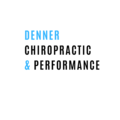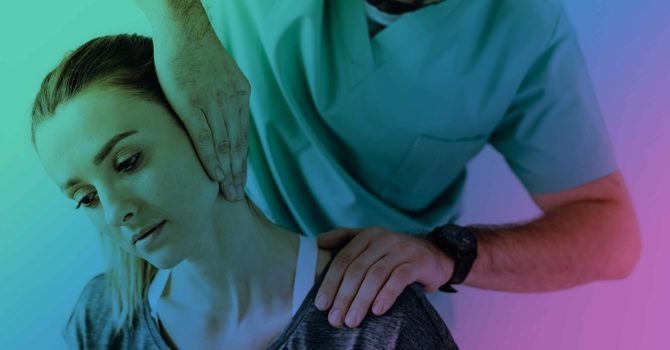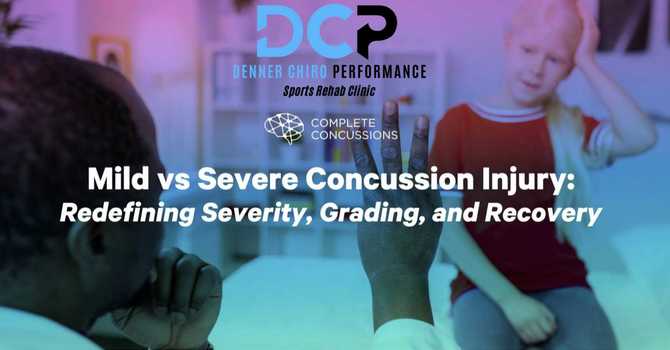
5 Most Common Causes of Persistent Concussion Symptoms
Concussions are a common injury, especially among athletes and people who engage in physical activities. Although most people recover from concussions within a few days to weeks, some may experience persistent symptoms that can last for months or even years. This condition is known as persistent concussion symptoms or post-concussion syndrome. We are going to discuss what Post-Concussion Syndrome is and the five most common causes.
What is Persistent Concussion Symptoms?
Persistent concussion symptoms occur when symptoms from a concussion persist for more than 14 days. This condition affects about 30%-40% of people who have had a concussion.
Symptoms include:
- Headache
- Dizziness
- Nausea
- Fatigue
- Irritability
- Depression
- Anxiety
- Memory
- sensitivity to light and noise
For the majority of cases, symptoms usually subside around the 7-10 day mark. If you are still having symptoms it is most likely caused by one or more of the mechanisms we are going to discuss. Now let’s get into it!
Here are the 5 most common causes of persistent concussion symptoms.
#1 Blood Flow Dysregulation
The primary factor contributing to Post-Concussion Syndrome (PCS) is often related to an imbalance in cerebral blood flow. Following a traumatic brain injury, there is a significant decline in cerebral blood flow, with research in animal models demonstrating reductions of up to 50%.
The disruption in blood flow is caused by a disturbance in the autonomic nervous system, which regulates heart rate variability, neurovascular coupling, and cerebrovascular reactivity. These three mechanisms play a crucial role in controlling the flow of blood to the brain, and when they are disrupted, patients may experience an increase in symptoms while engaging in physical activity or demanding tasks. In very severe cases this phenomenon is known as dysautonomia.
Symptoms of dysautonomia include:
- Anxiety
- Blurry or double vision
- Brain Fog
- Dizziness / Lightheadedness / Syncope
- Exercise intolerance
- Insomnia
- Tunnel Vision
The treatment for this is simple and not what you may think. Research done at The University of Buffalo shows that sub-symptom threshold exercise is the best treatment for helping this dysregulation. Sub-symptom threshold exercise is determined by a "Buffalo Treadmill Test". This is a simple walking test that allows the clinician to determine the patient's maximum heart rate without increasing symptoms. Once an athlete has recovered from their concussion and a return to play decision must be made, a concussion doctor will further test this mechanism along with others by using the "Chicago Blackhawks Test."
#2 Metabolic / Inflammatory / Hormonal
Inflammation is a common and expected occurrence following a concussion, serving as an integral component of the healing process. The challenge arises when the inflammation becomes chronic and uncontrollable. The Gut-Brain-Axis has been identified as the primary factor contributing to systemic inflammation in the aftermath of a traumatic brain injury.
Research has demonstrated that there is a heightened level of intestinal permeability after a concussion, which can have adverse effects. This increase in permeability allows for the entry of undesirable particles into the bloodstream, triggering an autoimmune response and exacerbating inflammation.
While dysregulation of your hormone levels is rare following a concussion it does occur. The good news is that the same treatment approach used to help lower inflammation is also used to help hormone dysregulation. The main treatment method used is an anti-inflammatory diet and other lifestyle modifications. This can dramatically help reduce gut permeability and help lower inflammation.
#3 Visual and Vestibular Dysfunction
Our visual and auditory systems play a vital role in our spatial awareness and perception of the world around us. Among the symptoms commonly reported by individuals with Post-Concussion Syndrome (PCS), several are related to the visual and vestibular systems.
Some of the most frequently reported symptoms include difficulties with focusing and eye tracking/scanning dysfunctions. Most common symptoms of the visual/ vestibular systems:
- Dizziness
- Balance problems
- Car sickness
- Light sensitivity
- Blurry vision (with/without movement)
- Double vision
- Peripheral vision problems
- Headaches
- Depth perception issues
- Reading issues (e.g. losing place, re-reading, word movement/blur)
- Intolerance to computer screens (brightness, scrolling)
#4 Cervical Spine
An impact to the head or body doesn’t always cause a concussion. A specific amount of force is required to produce a concussion. The amount of force proven to cause a concussion is measured in gravitational force (G-Force). Research indicates that a force of 70-120 Gs is necessary to sustain a concussion injury.
Conversely, a whiplash injury, also known as cervical spine sprain/strain, is caused by a significantly lower amount of force, with a range of 4.5 G-force. This highlights the importance of considering the cervical spine in the management of post-concussion syndrome (PCS), as every concussion injury has a component of cervical spine injury.
The most commonly observed dysfunctions in the cervical spine include joint restrictions and trigger point referral patterns. Joint restrictions are a result of immobility and can lead to tension, stiffness, and pain. Trigger points, on the other hand, are a normal physiological response that develops as a protective mechanism, often in muscles lacking stability. Headaches, visual disturbances, dizziness, and other symptoms have been linked to trigger point referrals from the cervical spine.
#5 Psychological
The impact that our emotions, thoughts, and stress levels have on recovery is profound. Misinformation and lack of proper education following a concussion can result in anxiety and stress, leading to physical responses that can worsen concussion symptoms. Many patients have been told that they will live with concussion symptoms for the rest of their lives and that they no longer can participate in activities they enjoy out of fear of permanent damage or symptom increase. This can lead to a loss of social interaction which has been shown to affect mental health and quality of life.
You may have heard of the placebo effect, where a patient experiences positive benefits simply because they believe they are receiving treatment. However, the nocebo effect is often forgotten and can be just as impactful. In concussion injuries, if a patient is not properly educated or is given misleading information, their thoughts and beliefs can lead to increased anxiety and stress. This can result in physical symptoms such as headaches, irritability, and difficulty sleeping, which can then lead to a cascade of other symptoms. Social interactions are important for our overall happiness and without them, we can become sad or depressed.
Another obstacle that patients with long-standing concussion symptoms often face is the good ole-day bias. This is when a person remembers a time before their injury when everything was perfect. They may have had a great memory, never had a headache, and felt amazing. However, this is not reality. Most people have minor problems in their life that are insignificant and forgotten. For example, forgetting to buy a favorite snack while grocery shopping is a common occurrence in normal life. The good ole-day bias can lead patients to believe that this type of minor slip in memory is from the residual effects of their concussion injury.
The Bottom Line
Having PCS is a nerve-racking experience, but with the right guidance and treatment, it can easily be treated. The best thing to do if you are suffering from Post-Concussion Syndrome is to find a healthcare professional that is properly trained in the treatment in this specific field. It takes a combination of the above treatment methods to properly help PCS.
You can find more about how we treat concussions here at Denner Chiropractic & Performance under our services tab. You can also find more information at https://completeconcussions.com. If you’re in the Charlotte area and want to make an appointment you can do that by visiting our website.
Denner Chiropractic & Performance | Charlotte, North Carolina
|
|
|

Denner Chiro Performance
Contact Me



